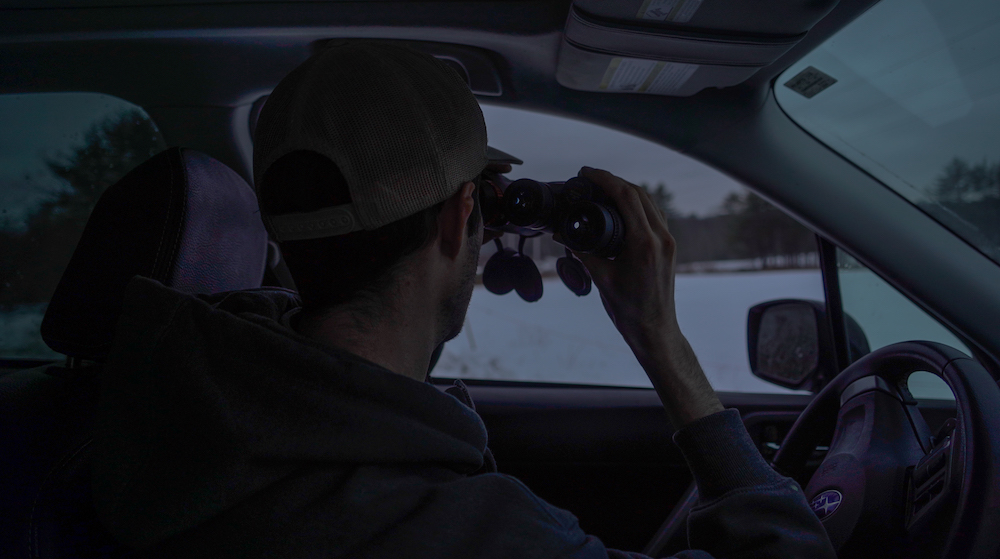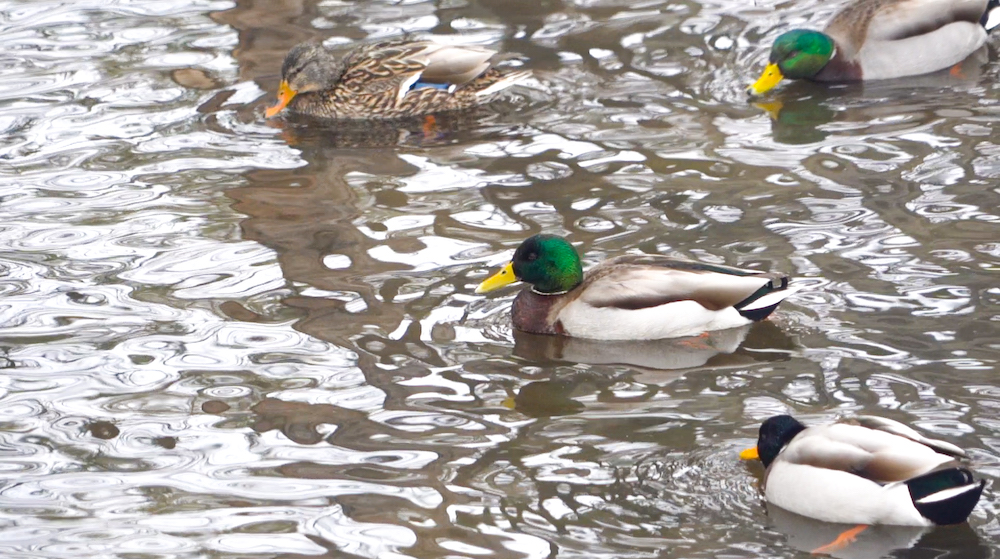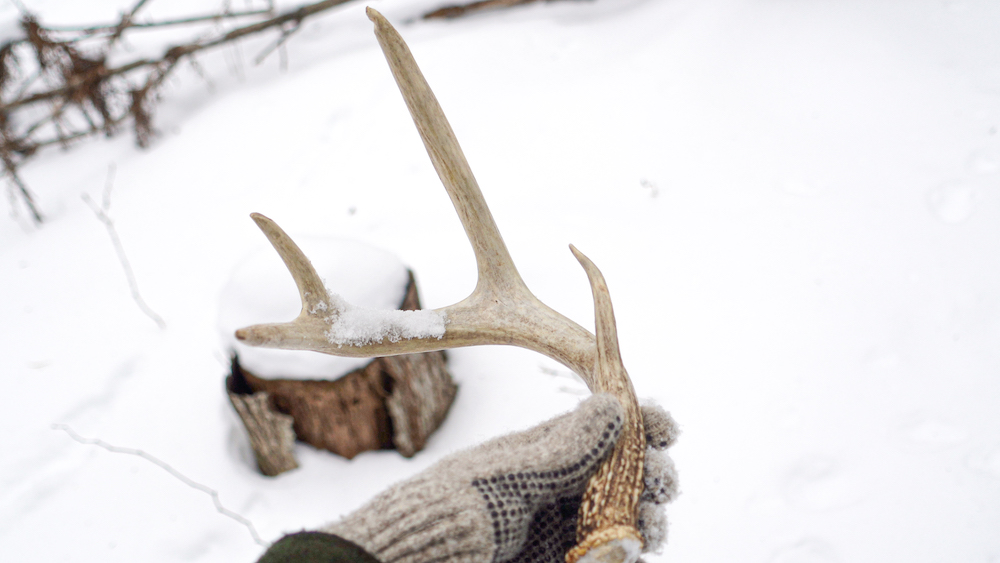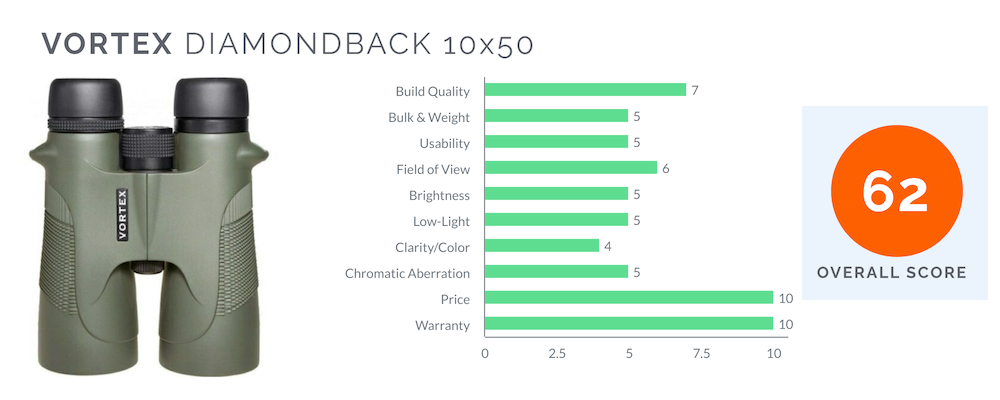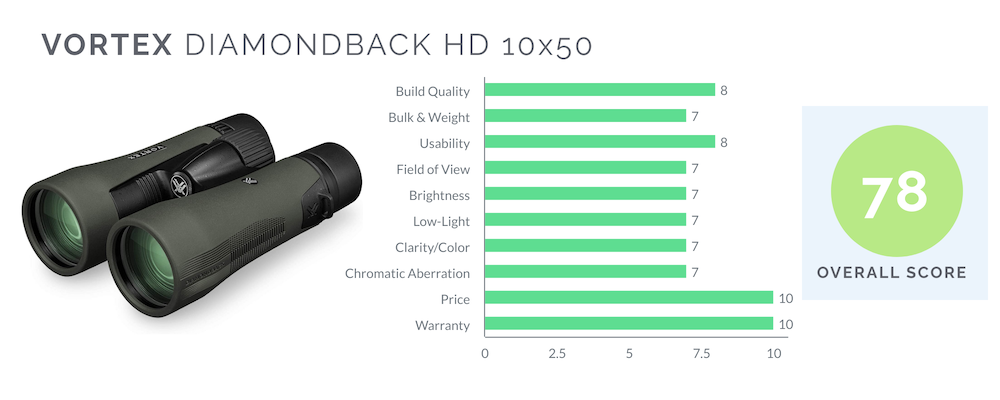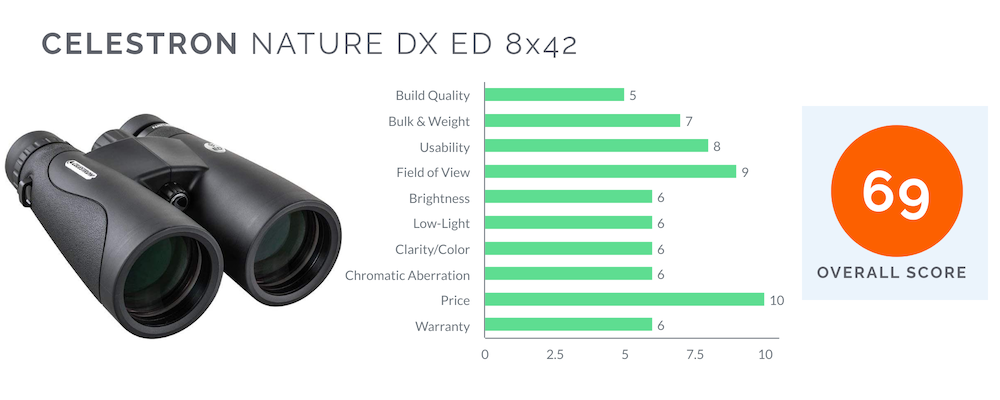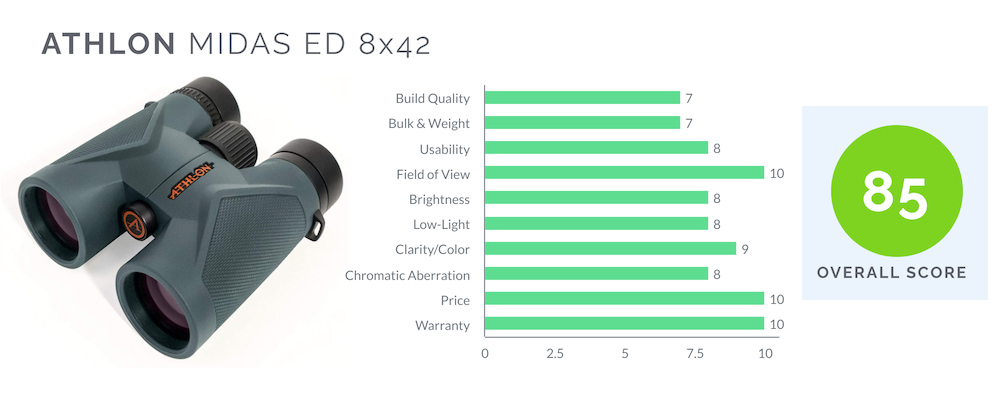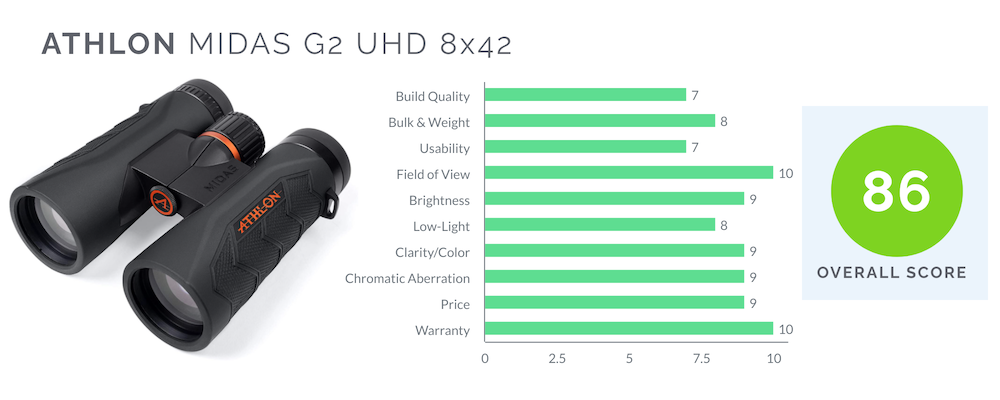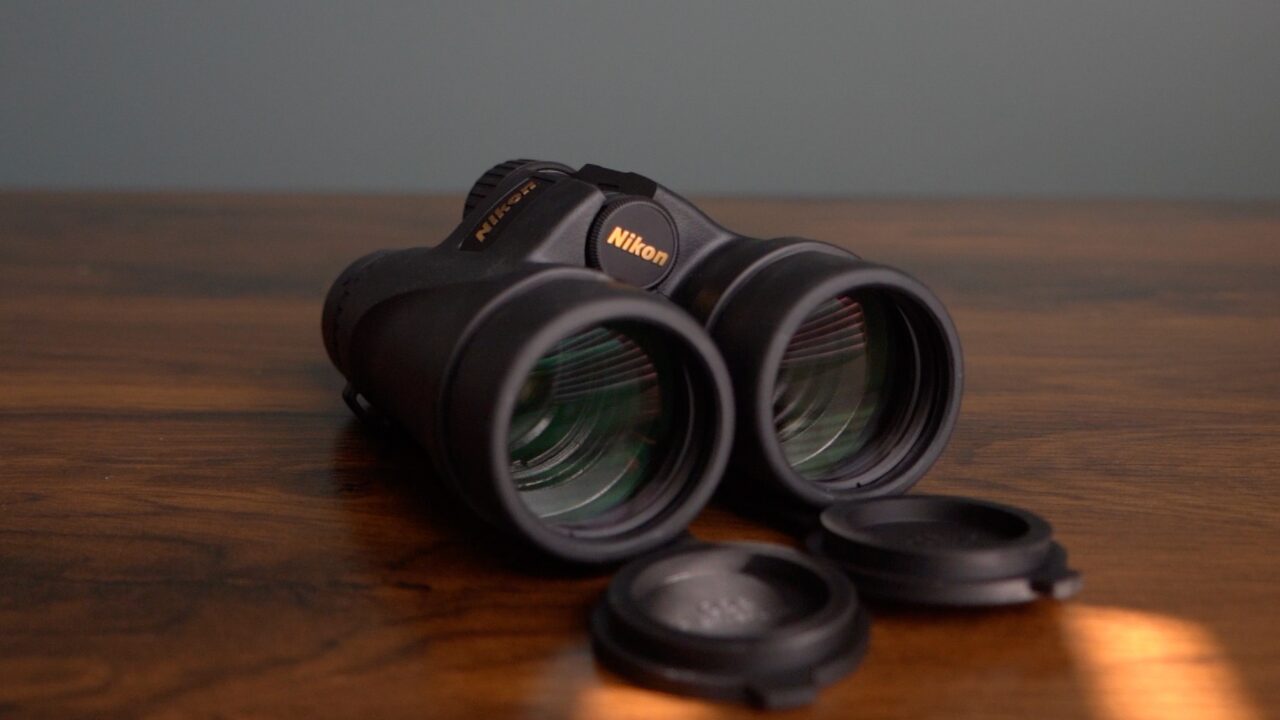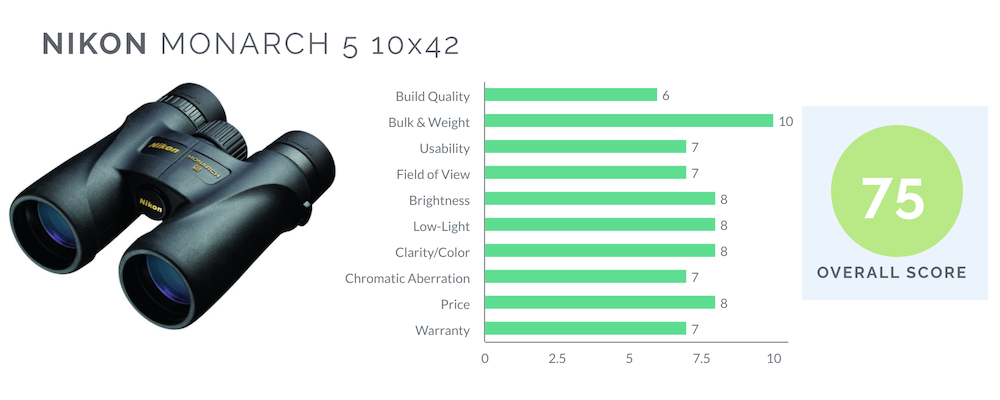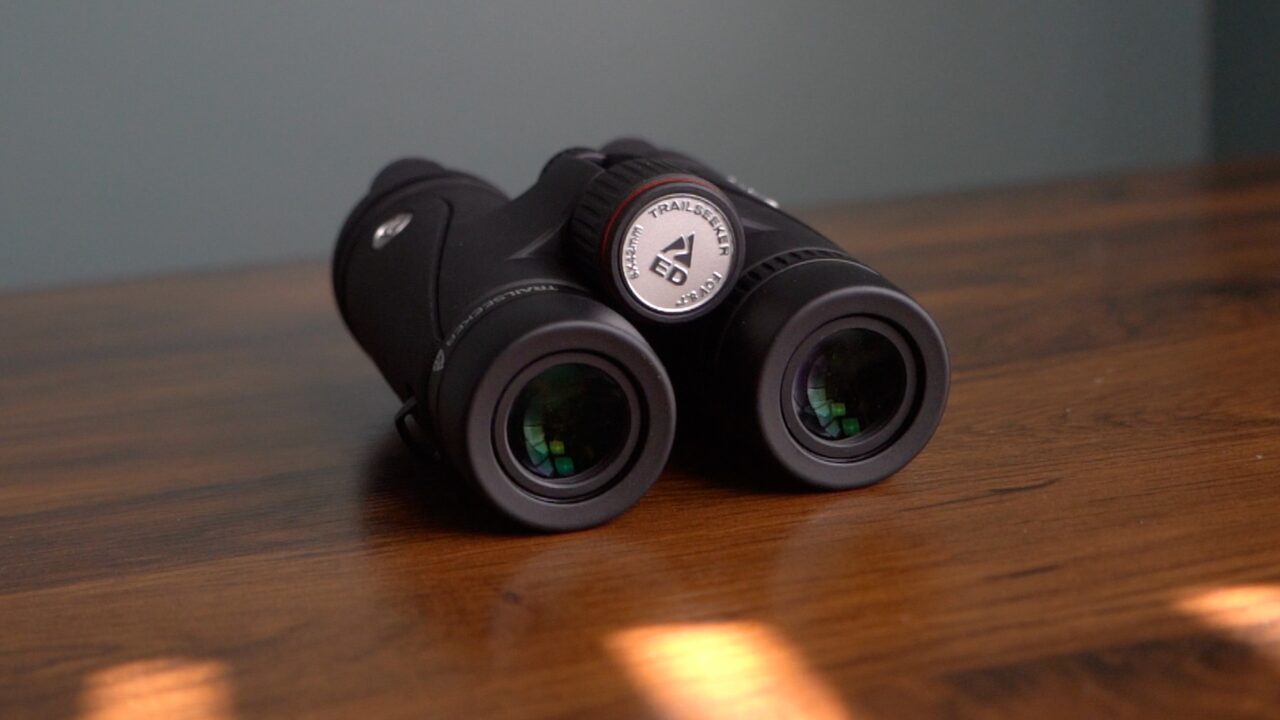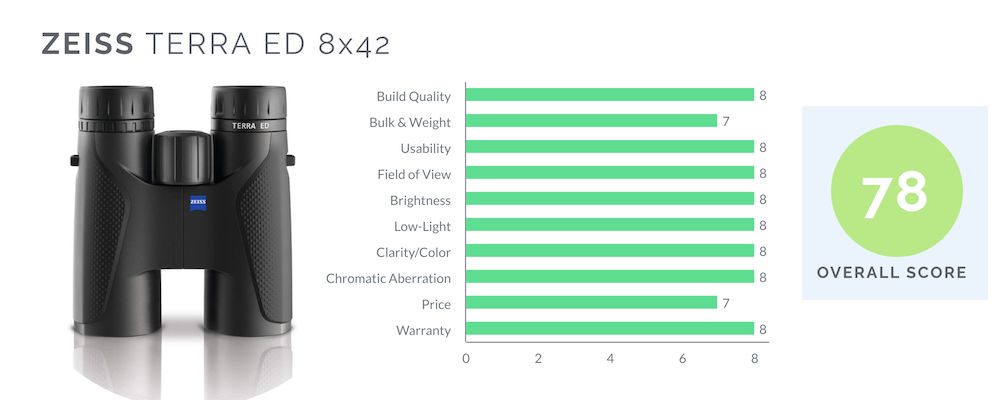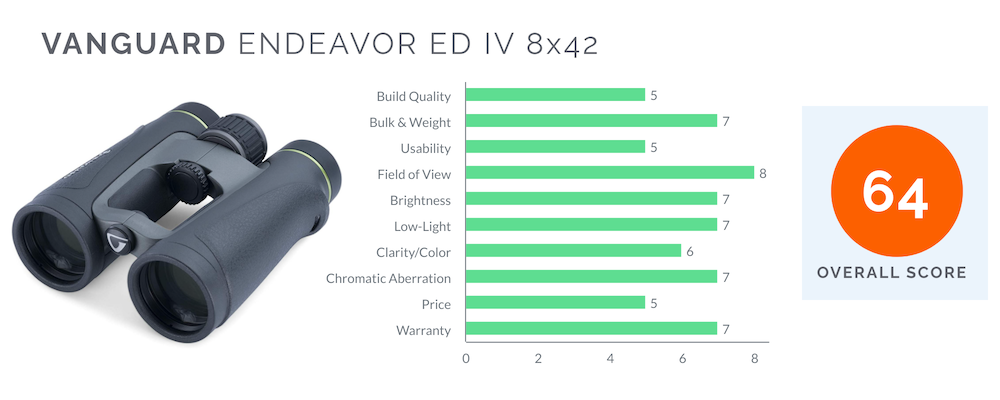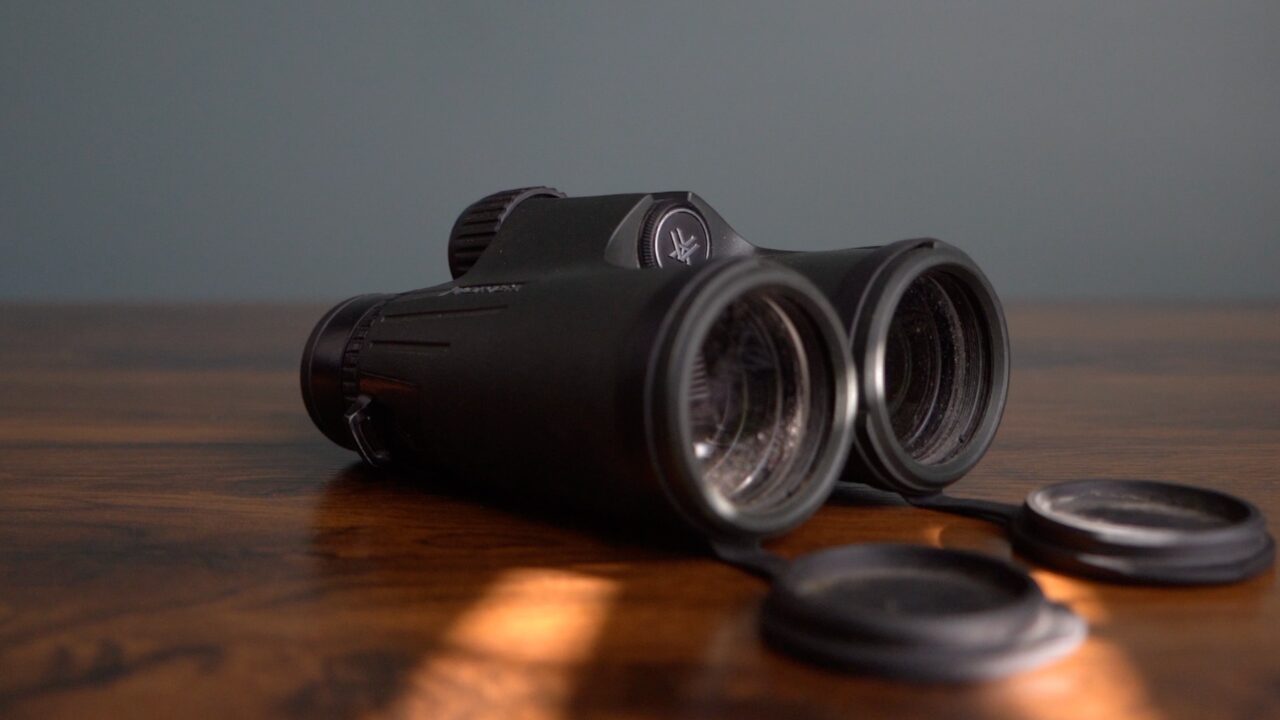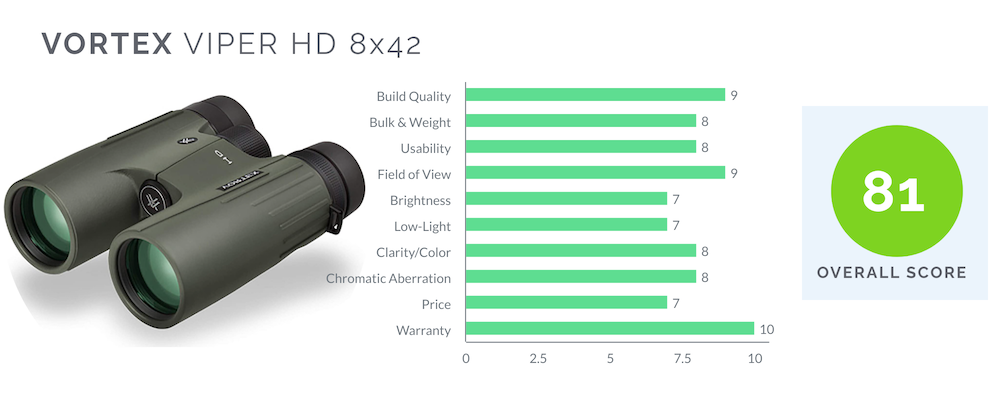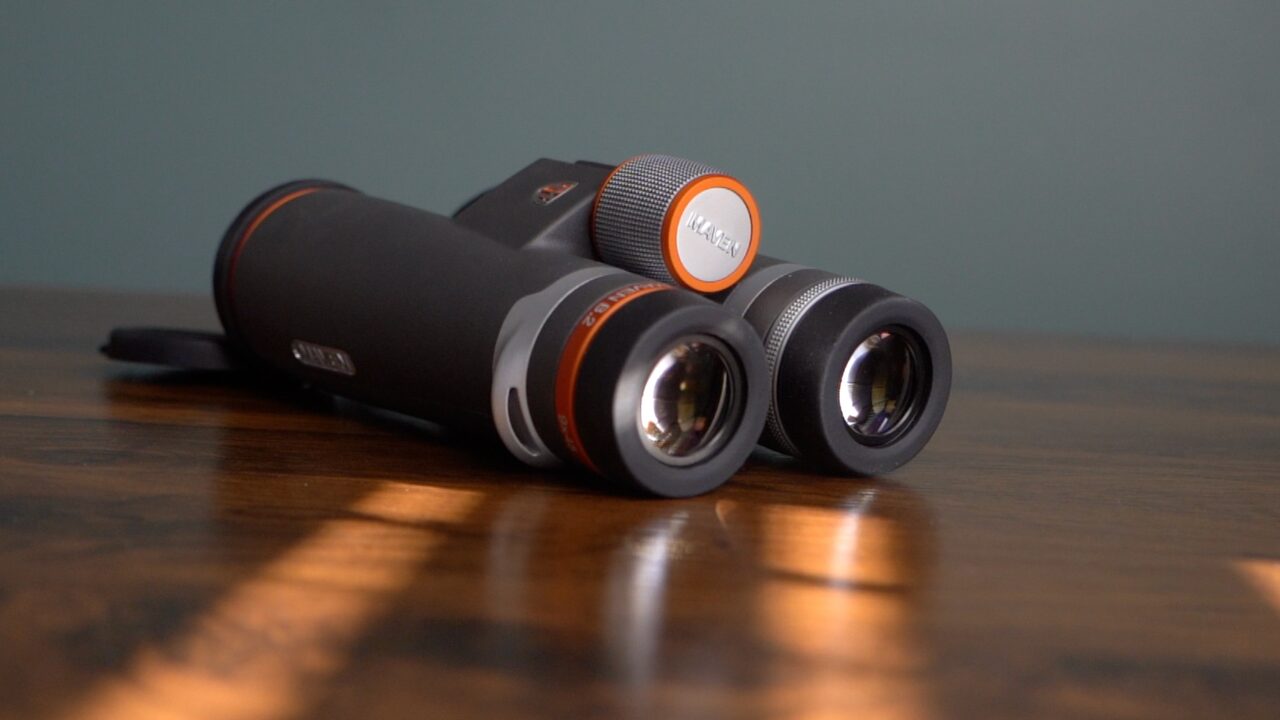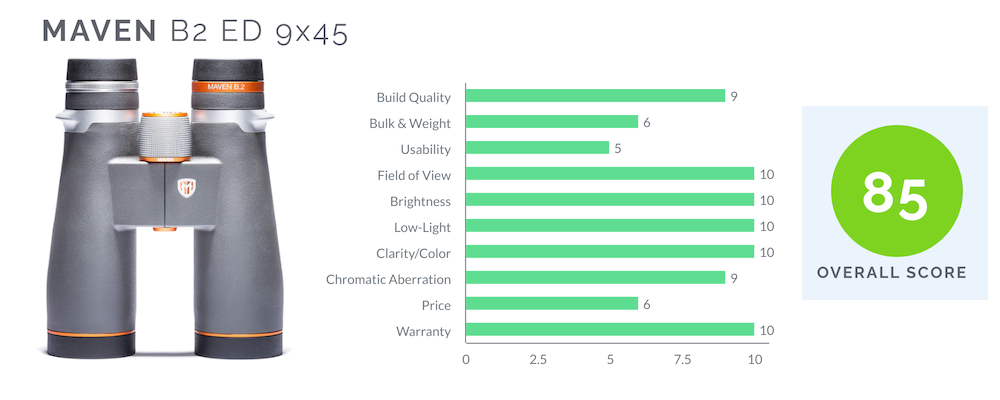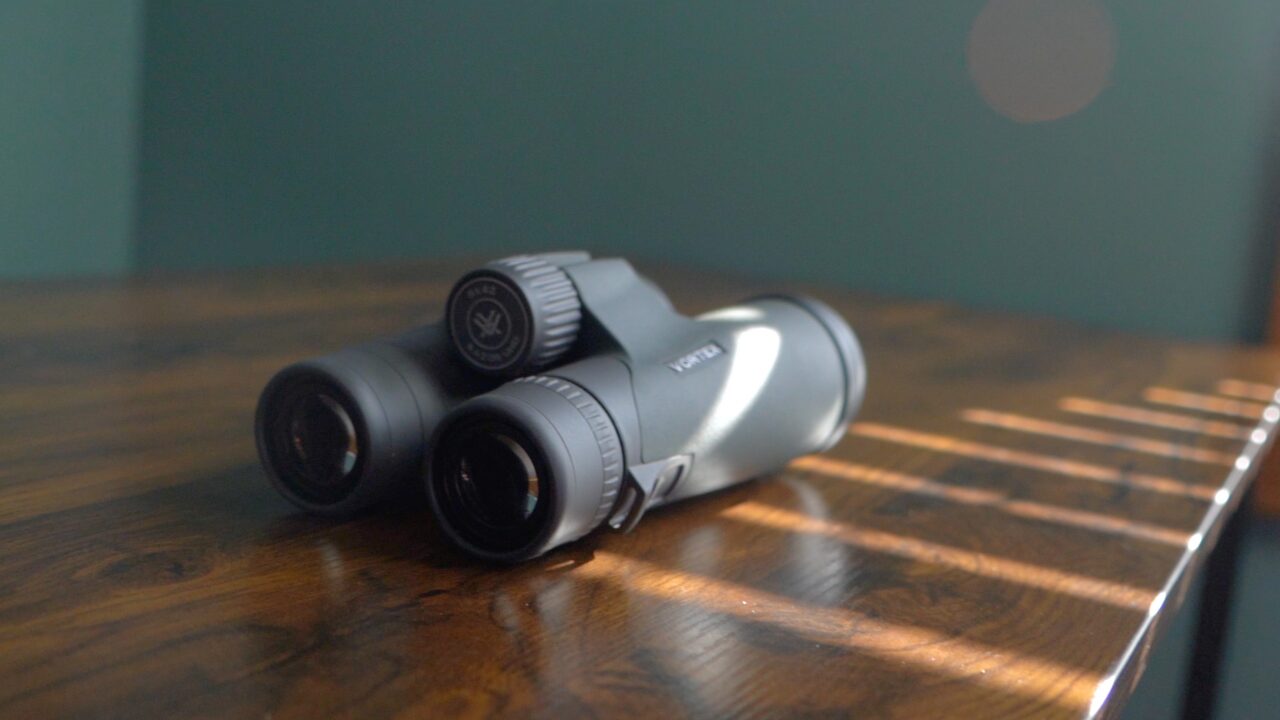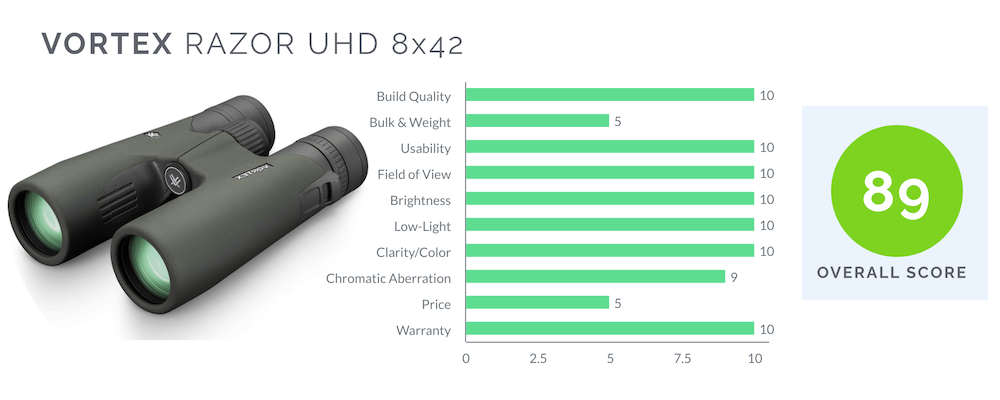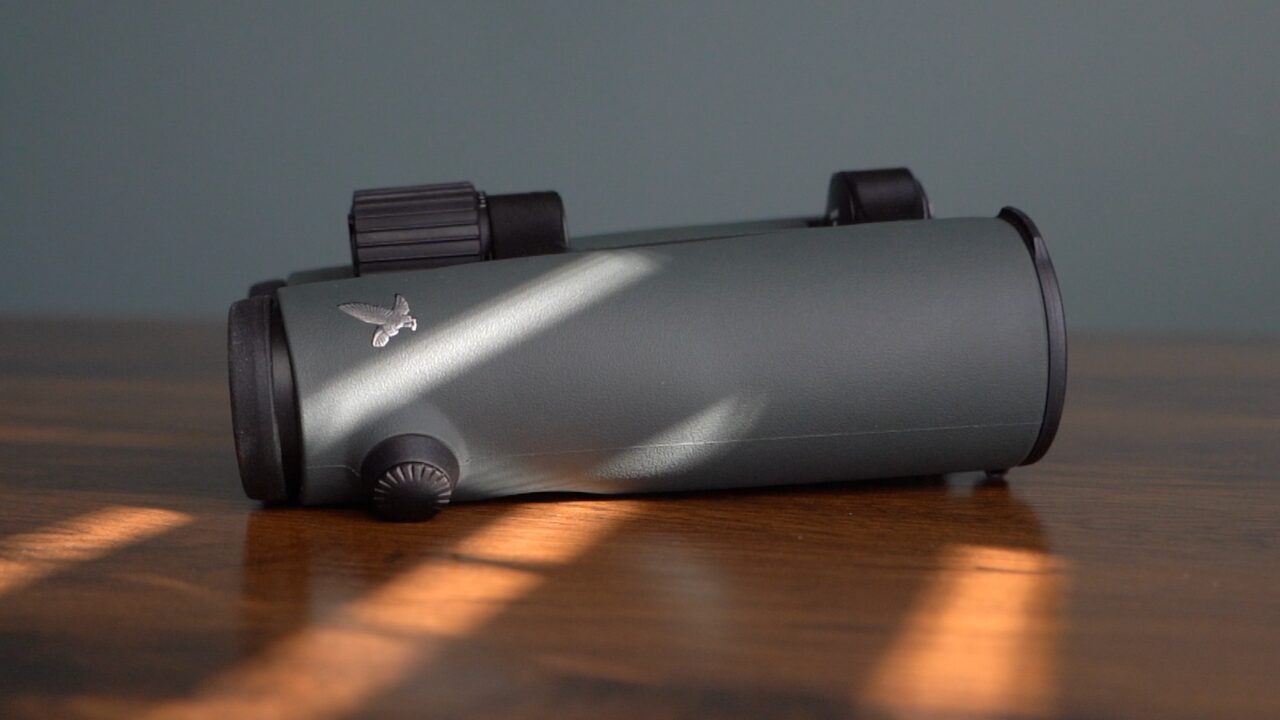Last Updated on March 31, 2024 by Jason Tome
I bought 14 popular binoculars for hunting at different prices to determine the best binoculars for the money and conducted field tests to judge and compare each binocular. In this article, I cover everything from entry-level to high-end hunting binoculars and everything in between, sorted by price.
Table of Contents
How Hunting Binoculars Were Chosen For This Review
I bought 14 highly recommended binoculars from multiple sources across the web, at different price points, to test and review the best value binoculars for hunting.
After researching hundreds of binoculars using multiple online sources and cross-referencing them, I decided to buy hunting binoculars where these multiple sources overlapped in recommendations.
To keep these binoculars on a level playing field, I purchased 8×42 binoculars in most cases. But this review does cover some other sizes such as 9×45, 10×42, and 10X50 for further comparisons.
How These Hunting Binoculars Were Scored
I tested these binoculars over 3 weeks, using them in common hunting scenarios to see how they compared.
They were scored using 10 categories that are essential for hunting applications:
- Build Quality
- Bulk & Weight
- Usability
- Field of View
- Brightness
- Low-Light Performance
- Clarity/Color
- Chromatic Aberration
- Price
- Warranty
This post contains Amazon and other affiliate links, which means I’ll receive a commission if you purchase through my link, at no extra cost to you. Of course, you are not obligated to use my links, but it does help fund these posts in hopes of bringing more value to you!
This Hunting Binocular Review’s Credibility
No Affiliation
I’m not affiliated with any of these binocular companies. I bought all of these binoculars with my own money, except for the Vortex Vipers which I borrowed from a friend.

My Credentials
As a wildlife biologist, Maine hunting guide, and avid outdoorsman I spend a lot of time in the outdoors and with outdoor gear that will make my life easier. For these reasons, I choose my hunting gear very carefully. I’m very picky about choosing my gear because I want it to do the job at hand as efficiently as possible without becoming a burden. Choosing the right binoculars is no different.
I’ve owned a few binoculars and had opportunities to try different types of binoculars through friends, family, and other outdoor professionals over the years. I also do photography and videography using interchangeable lens cameras. The concepts of how these lenses work with cameras are basically the same as how binoculars work with the human eye.
This, combined with extensive research on the ins and outs of how binoculars work, and how to choose binoculars to get peak performance for specific hunting styles is something I believe I’m very qualified to do.
Watch The YouTube Video:
Field-Tested Hunting Binoculars Under 350$
1. Vortex Diamondback (Old Version)
These are the binoculars that I’ve been using for the past 5-6 years now. For the price (on sale for 150$) these binoculars worked great and were some of the better binoculars on the market at the time for this price. However, after using other binoculars I found that my Diamondbacks were not nearly as clear as the newer binoculars that were around the same price.
The reason I included these older model binoculars in this review is to point out how much technology has changed in the last few years. Manufacturing has been able to produce much higher-quality glass, allowing for better binoculars to be a more reasonable price.
The difference between these Diamondbacks and the other binoculars in this review is night and day. If you have older binoculars, I would highly suggest an upgrade.
Edge-to-edge clarity just isn’t there either. It feels like you have tunnel vision when looking through these binos, but at least the center is in focus. Below are my field notes for each category:
| Build Quality | Durable binoculars, they have lasted over 5 years with no issues. |
| Bulk & Weight | Fairly heavy and bulky binoculars for a 10X50. |
| Usability | Focus knob is hard to move, one solid click-in eyecup setting. |
| Field of View | 315ft/1000 yards – not bad for 10X, but has tunnel vision (edge-to-edge clarity lacking) |
| Brightness | Not very bright compared to the other binoculars in this review |
| Low-Light | Expected more out of 50mm, orange-yellow tinted in lower light, things become ‘fuzzy”. |
| Clarity/Color | Edge-to-edge clarity is poor. |
| Chromatic Aberration | Aberration is noticeable and present but not terrible. |
| Price | Inexpensive, not made anymore |
| Warranty | One of the best there is for warranties – Lifetime Warranty |
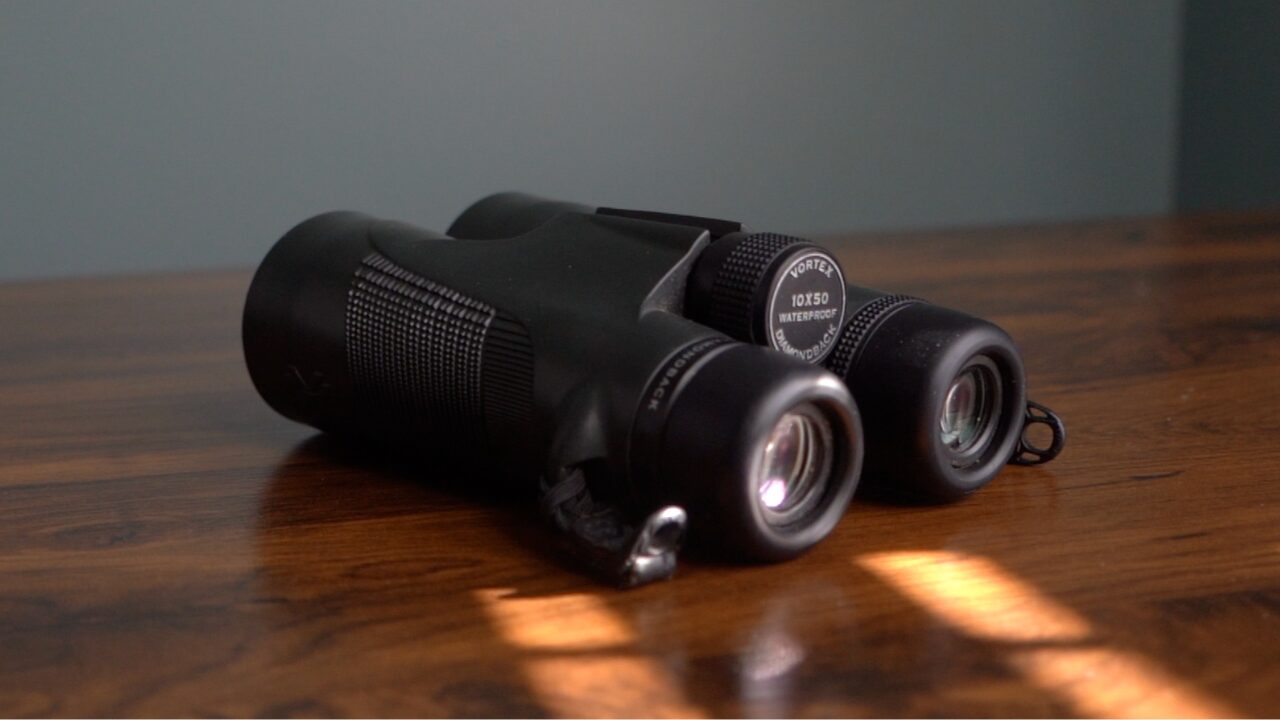
2. Vortex Diamondback HD
You might be wondering if there is a big difference between the older model Diamondbacks and the newer Diamondback HD’s. I had the same question, so I bought the HD’s to compare how glass quality has increased over the past few years.
There was a huge difference. The Diamondback HD’s were better in every way and were much more competitive and comparable to the other binoculars in this review. Below are the field notes I took during my review:
| Build Quality | Durable, feels very well made |
| Bulk & Weight | Average for 10×50, slightly front-heavy |
| Usability | Eyecups work well, focus knob works well with one finger |
| Field of View | 315 FOV, average for 10x |
| Brightness | Brightness is about average compared to other binos |
| Low-Light | Not bad for 10×50, about average |
| Clarity/Color | Pretty good, also about average |
| Chromatic Aberration | Some, but not bad for the price |
| Price | One of the most affordable tested |
| Warranty | One of the best there is for warranties – Lifetime Warranty |
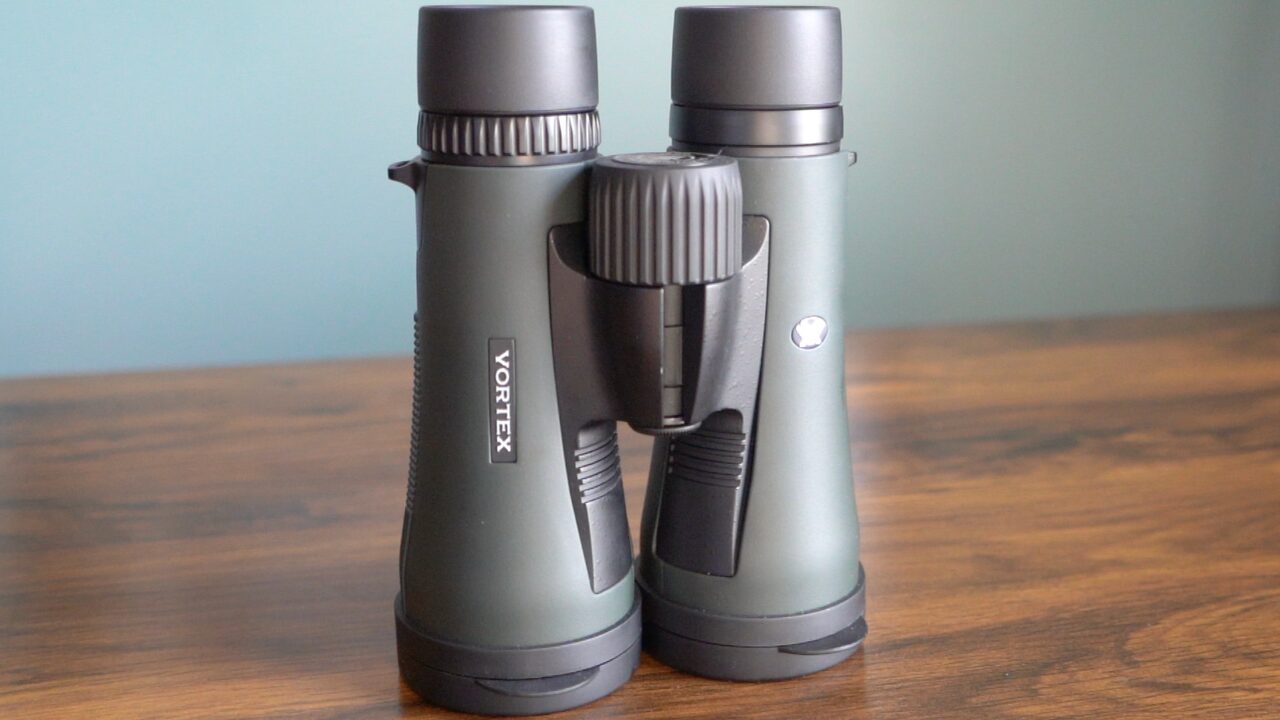
3. Celestron Nature DX ED
The Celestron Nature DX ED 8×42 was the most affordable binocular in this test. For its price, it does well. It does a good job in situations where there is plenty of light. But once the sun starts to set you start to notice where this binocular is lacking. That being said, it does not do a horrible job, it just is obvious when comparing these binoculars to the other binoculars that it does a below-average job in brightness, low light, and clarity.
A big reason to get good hunting binoculars is to be able to see when animals are most active, during low light. But if the type of hunting you do doesn’t require you to see low-light situations, then these binoculars are not bad for their price. But if you spend 50$ more you can get a substantially better pair. Below are the field notes I took while reviewing these binoculars:
| Build Quality | Eyecups are finicky, they don’t stay in place well. |
| Bulk & Weight | Average compared to other binoculars |
| Usability | Does a good job focusing on objects quickly |
| Field of View | Excellent, 393 FOV, very wide |
| Brightness | Orange-yellow tint, especially in low-light |
| Low-Light | Slightly below average when compared to other binoculars |
| Clarity/Color | Slightly below average when compared to other binoculars |
| Chromatic Aberration | Slightly below average when compared to other binoculars |
| Price | One of the most affordable tested |
| Warranty | 2-year or Limited-Lifetime |
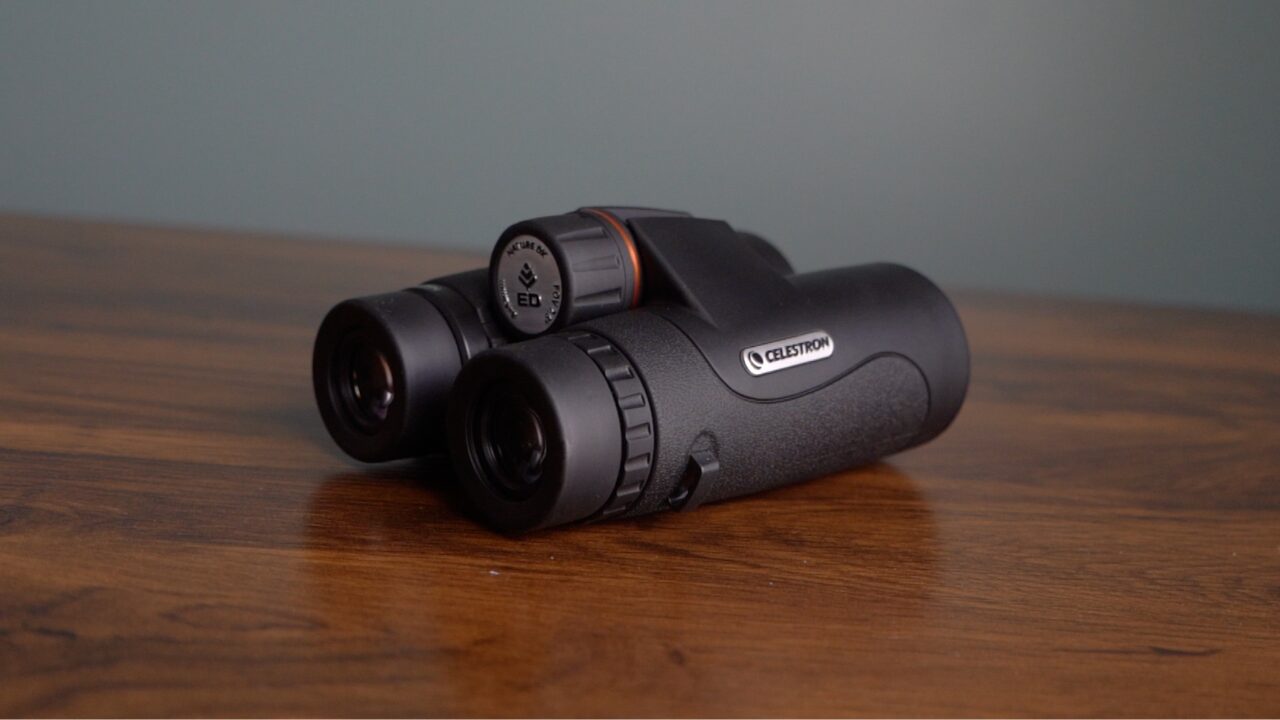
4. Athlon Midas ED
| Build Quality | Average, feels sturdy in hand. |
| Bulk & Weight | Slightly better than average, lower-profile |
| Usability | 1 finger focus knob adjustment, everything works well |
| Field of View | 426 FOV, tied with best there is in this review |
| Brightness | Excellent, bright white, amazing for the price |
| Low-Light | Excellent better thana and comparable to more expensive |
| Clarity/Color | Edge to edge is very well done for wide FOV |
| Chromatic Aberration | Slightly better than average, not very noticeable |
| Price | Inexpensive, one of the more affordable options, especially for what you get |
| Warranty | Athlon offers a very good lifetime warranty. |
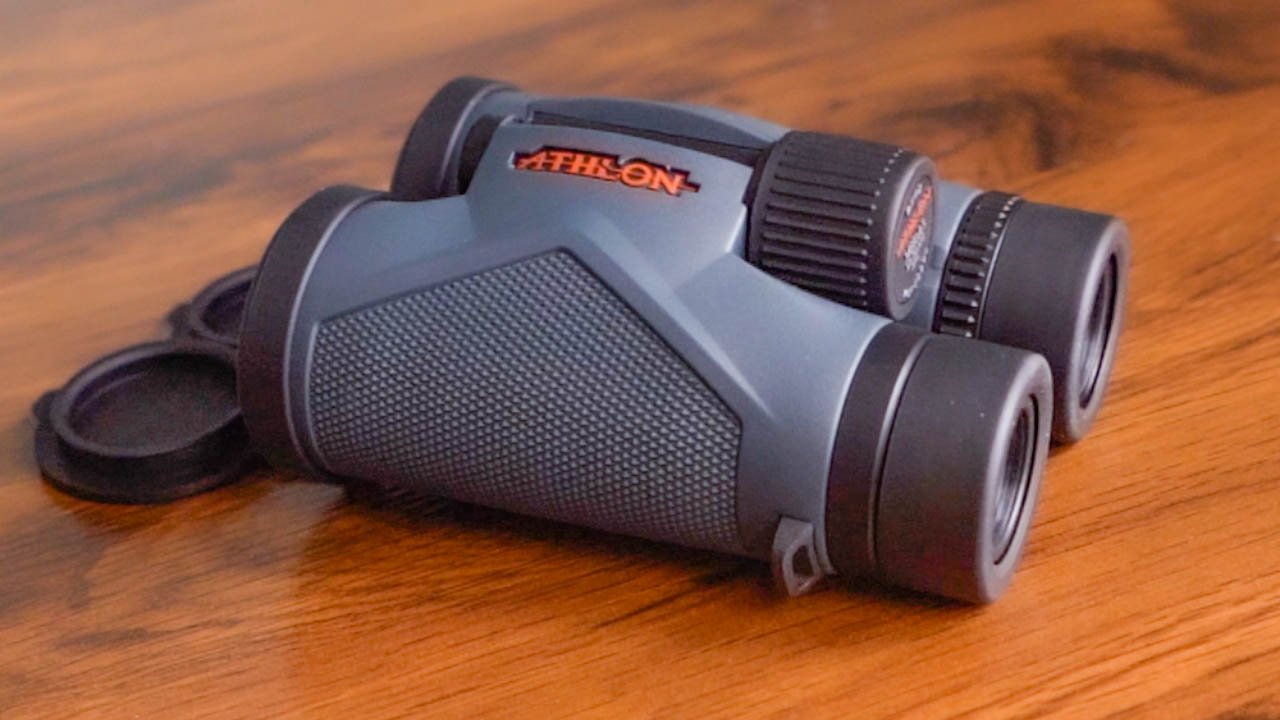
5. Athlon Midas G2 UHD
| Build Quality | average |
| Bulk & Weight | slightly better than average |
| Usability | average |
| Field of View | 426, tied with best |
| Brightness | excellent, bright white |
| Low-Light | great, comparable to more expensive |
| Clarity/Color | edge to edge is very well done for how wide |
| Chromatic Aberration | very little |
| Price | inexpensive |
| Warranty | lifetime |
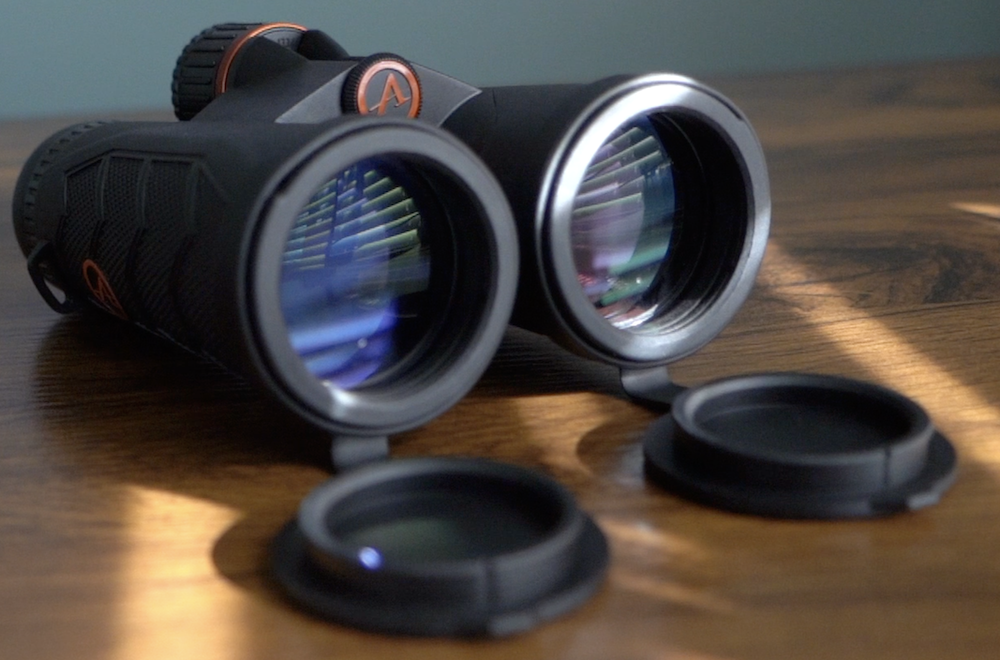
6. Nikon Monarch 5
This review examined the 10×42 model of these binoculars. Overall I was impressed with these binoculars as they were 10×42’s competing with mostly 8×42’s in this review.
I was impressed with the brightness and low-light capabilities of these binoculars, especially for being 10×42’s, which normally don’t do as well in this category compared to 8×42’s. But these were able to keep up with and do better than some of the more expensive 8×42 binoculars.
The Monarch 5’s didn’t slouch in any department except slightly in build quality. The build quality, in my opinion, was not great because of the rubber that gets marked up very easily. Although the rubber coating of the binoculars is great for grip and deadens noise when bumped, the rubber is ‘pencil eraser-like’. My first impressions indicated that residue would likely remain on this rubber coating. This doesn’t affect performance but I’d like to keep my hunting binoculars clean and looking as nice as possible for years to come.
These binoculars were also very lightweight. This may be fine in an 8×42 pair, but for these 10×42’s I wouldn’t mind having a little bit more weight to stabilize my viewing experience. It can be difficult when looking for small details, and small details are often the most important for hunters. For example, being able to see antler tines, turkey beards, or identifying waterfowl at a distance.
I think I would have enjoyed the Nikon’s higher if I had tested an 8×42 pair. This is because it would have ranked better in field of view (330 ft instead of 288 ft at 1000 yards), they wouldn’t have appeared to be as shaky, and low-light may have been even better than it already is. Below are my field notes from reviewing these binoculars:
| Build Quality | rubber grip leaves marks easily |
| Bulk & Weight | very light |
| Usability | too light, shaky ( 10×42) |
| Field of View | 288 ft 10×42 |
| Brightness | Better than expected for 10×42 |
| Low-Light | Better than expected for 10×42 |
| Clarity/Color | very clear binoculars for the price |
| Chromatic Aberration | some chromatic aberrations present |
| Price | affordable |
| Warranty | Limited Lifetime |
8. Celestron Trailseeker ED
| Build Quality | Slightly better than average |
| Bulk & Weight | Slightly better than average |
| Usability | Metal focus knob – very noisy |
| Field of View | 341 ft/1000 yards, not the best, not the worst |
| Brightness | Excellent, bright white |
| Low-Light | 90% pass-through, it was noticeable, very good |
| Clarity/Color | Very crisp glass |
| Chromatic Aberration | Some, slightly better than average |
| Price | Most expensive in price range, but still great value for the price |
| Warranty | Unconditional lifetime warranty |
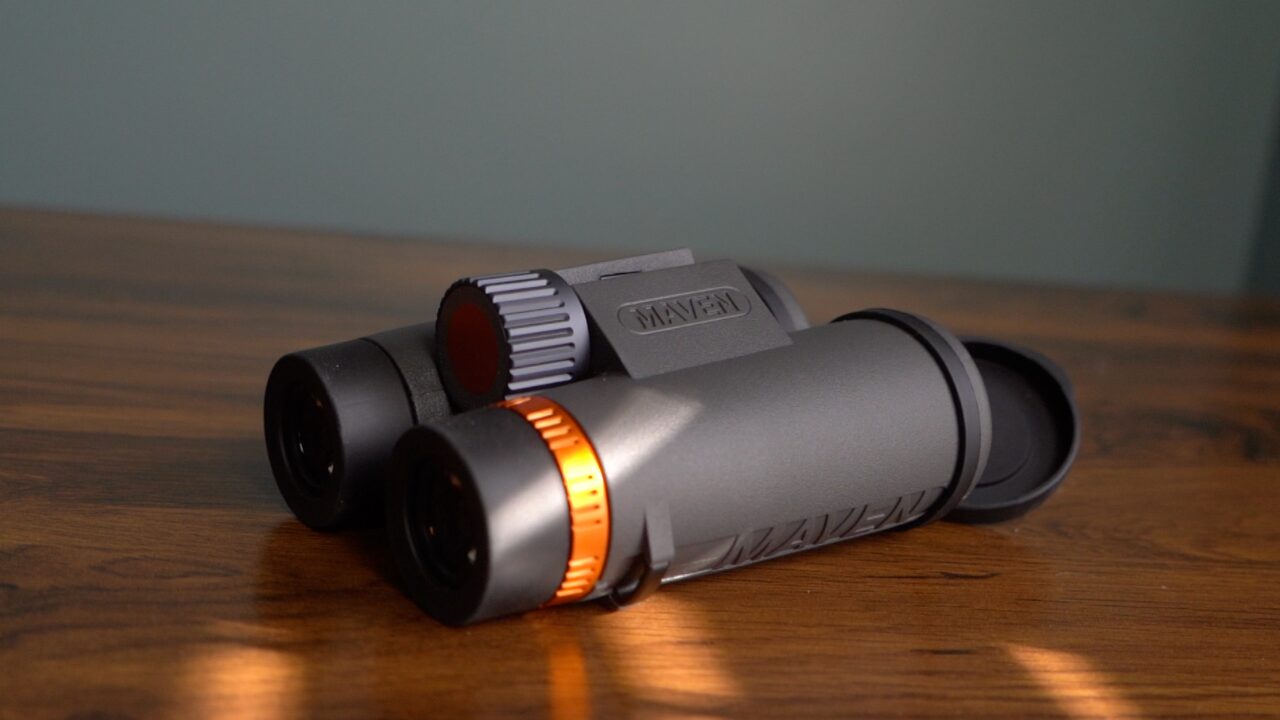
Field-Tested Hunting Binoculars Under 500$
9. Zeiss Terra ED
The Zeiss Terra EDs are all-around solid binoculars. They ranked slightly above average in most categories. The eyecups were a little sticky but not so bad it would prohibit me from buying. I liked that the focus knob was more easily moved with one finger than most other binoculars. They are very bright, and crisp, and do well in low-light. I was not a fan of the lens caps, they are different than other binoculars and got in the way often.
Overall these binoculars were very good, but I was just as impressed, if not more impressed, with some of the lower-priced binoculars such as the Midas’s and Maven C1. I would be more inclined to buy this binocular over the Maven C1 because of Maven’s metal adjustment knob. The Mavens did appear to have better optics though. So, if the metal knob is not an issue for you then the Mavens would be a better choice. Below are my field review notes:
| Build Quality | Slightly better than average |
| Bulk & Weight | Average |
| Usability | Slightly better than average |
| Field of View | 375 ft @ 1000 yards, pretty good |
| Brightness | Slightly better than average |
| Low-Light | Slightly better than average, 88% light trans |
| Clarity/Color | Slightly better than average |
| Chromatic Aberration | Slightly better than average |
| Price | Fair mid-range price |
| Warranty | Pretty good, not the best |
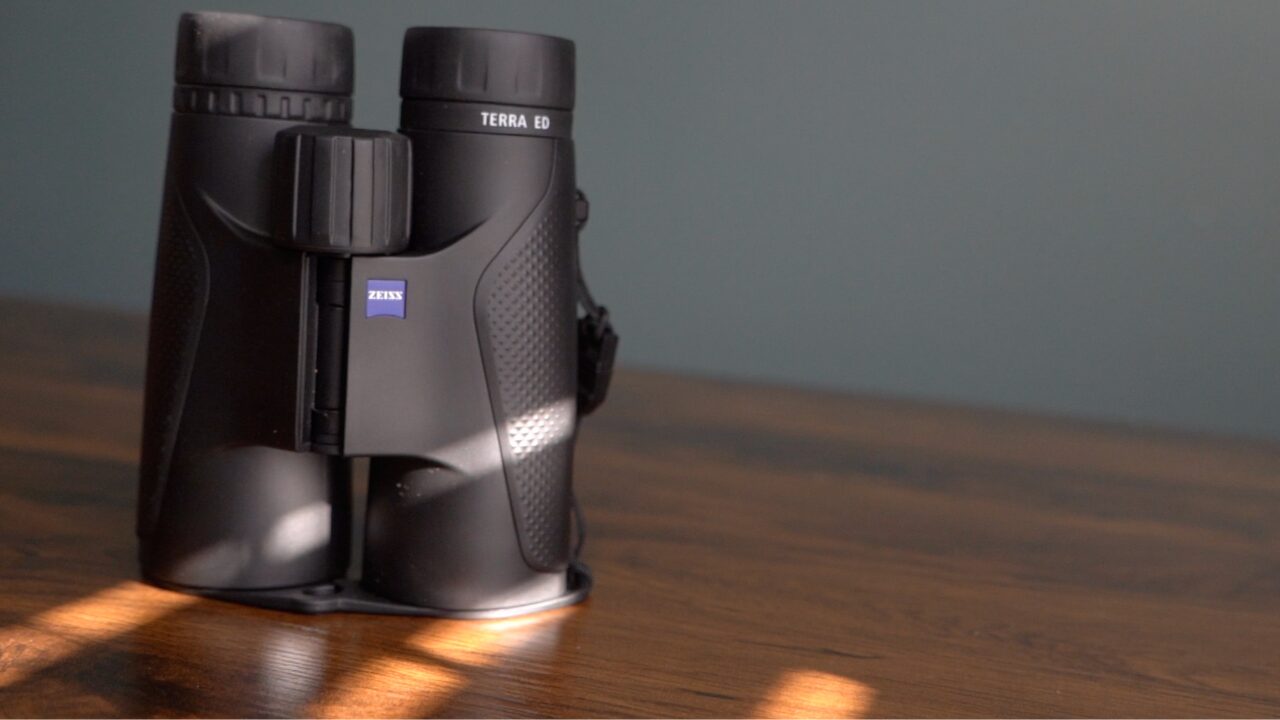
10. Vanguard Endeavor ED IV
I did not have a good experience with the Vanguard Endeavor ED IVs. I may have received a faulty pair, I’m not sure but they did not perform well. The eyecups and focus knob were terribly sticky, especially when cold. If the weight of your finger was not placed on the center of the focus knob, it would be even harder to twist. For this reason, I primarily had to use fingers from both hands to be able to move the dial to focus. This is annoying, especially in hunting situations when you often need to get focused quickly.
It was difficult to get a clear picture, even after using the diopter to adjust both eyes. The brightness and low-light capabilities left some to be desired. It had an orange tint to the glass in low lighting, similar to that of the cheapest binoculars in this review.
For the price, I believe there are many better binocular options to choose from for hunting applications. Below are my field review notes:
| Build Quality | Below average, sticky dial and eyecup |
| Bulk & Weight | Average |
| Usability | Everything was sticky, knob didn’t work well with 1 finger |
| Field of View | 377 ft @ 1000 yards, pretty good |
| Brightness | Average |
| Low-Light | Average |
| Clarity/Color | Below average |
| Chromatic Aberration | Average |
| Price | Expensive for what you get |
| Warranty | Average |
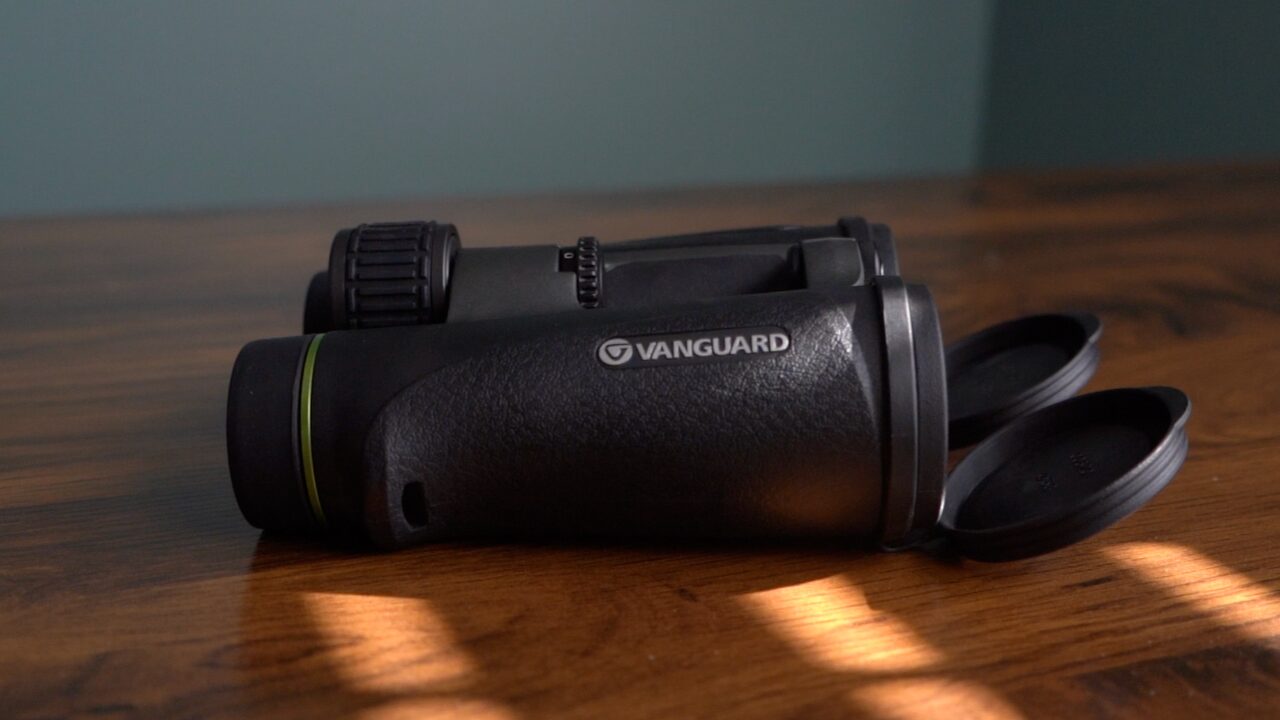
11. Vortex Viper HD
The Vortex Vipers were one of my favorite binoculars in the review. These were my favorite binoculars in the mid-tier price range (350-500$). They were above average in most areas but were not as bright nor did they have the same and low-light capabilities that the Zeiss Terra ED, Maven C1, and Midas binoculars had. That being said, the Vipers were still competitive in these areas.
These are great binoculars but are beginning to be on the more expensive side. For the price, these aren’t a bad purchase, but I found that some of the cheaper binoculars did equal to, if not better, when compared to the Vipers. My field review notes are below:
| Build Quality | Feels like its built solid |
| Bulk & Weight | Small but heavy |
| Usability | They work great, no complaints |
| Field of View | 409 ft @ 1000 yards, excellent |
| Brightness | Average |
| Low-Light | Average |
| Clarity/Color | Slightly better than average |
| Chromatic Aberration | Slightly better than average |
| Price | Fairly expensive |
| Warranty | Excellent, can’t beat it |
14. Swarovski EL
The Final Results
It was clear after conducting this review that both the Athlon Midas G2 UHD and the Athlon Midas EDs are the best value binoculars for the money. You can’t go wrong with either one for the price. When compared to the Swarovski’s, there was a difference, but for hunting applications, there wasn’t a 10x difference in price. For the price difference, the Midas’s had, in my opinion, 80% of what the 1000$+ binoculars had to offer.
Best High-End Hunting Binoculars For Hunting
The Swarovski’s and Vortex Razor UHD’s both tied for first place. These two were built differently, so you’ll need to consider your personal style of hunting when choosing them.
For me, the Swarovski EL’s were the best high-end binoculars for mobile hunters because they were the smallest of the tested binoculars in the 1000$+ category while also have slightly more zoom and maintaining a very wide field of view.
The Vortex Razor UHDs are built differently than the Swarovski’s but were also very nice binoculars. If you don’t mind a little more bulk for the type of hunting you do, these binoculars are just about every bit as nice.
Are Expensive Hunting Binoculars Worth The Money?
There is a point of diminishing return when buying hunting binoculars. You can obtain 80% of the quality by spending 10x less money.
For example, the Athlon Midas binoculars cost +/- 250$, whereas the Swarovski EL’s cost +/- 2500$. So for 10x less money, you can still have at least 80% of what those expensive binoculars offer.
For me, if 250$ binoculars are even 70% comparable to 2500$ binoculars, that’s good enough for me.
I put my hunting binoculars to the test in all types of weather and through rough habitat and I don’t need to be worried about losing, dropping, scratching, or forgetting expensive binoculars.
For the reasons mentioned in this article, I believe the Midas binoculars are the best value binoculars for hunting because they offer, in my opinion, 80% of the value when compared to the most expensive binoculars that cost 5x-10x more money.
I hope you’ve found this review of the best hunting binoculars helpful, if you have, feel free to share it using the social media buttons below.
If you have questions or comments feel free to leave them in the comments section below or message me on Facebook or Instagram.

